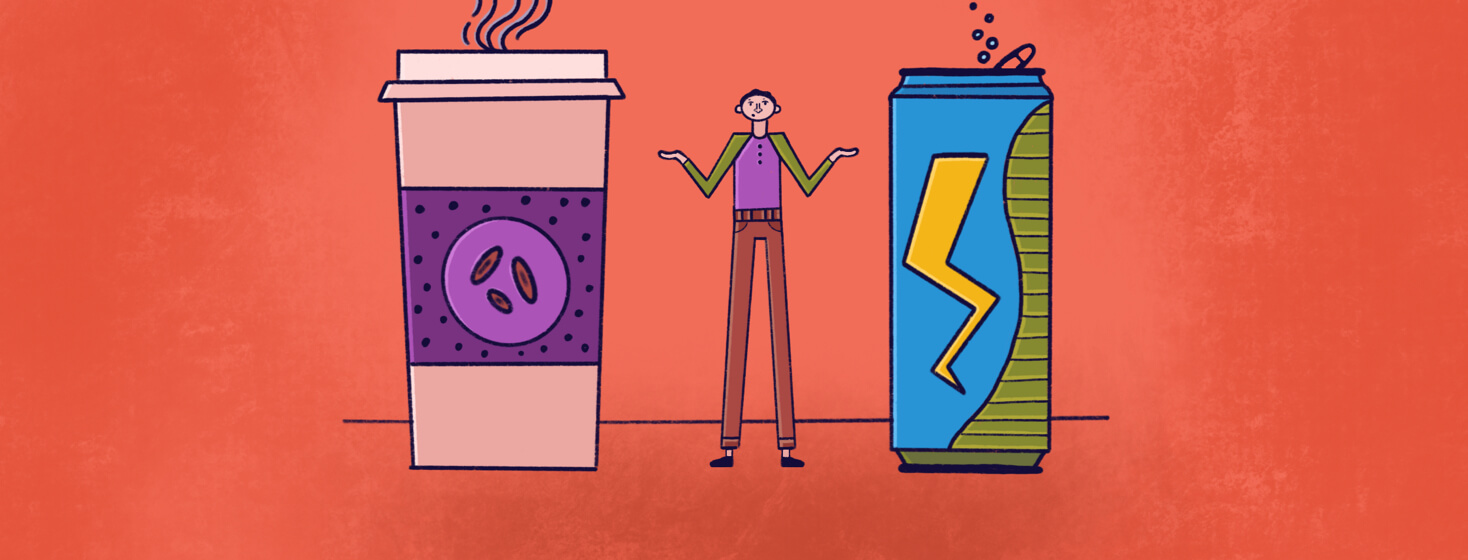Are Energy Drinks an 'Upgrade' on Your Cuppa?
You might be surprised to know that I don't suggest you abandon your morning cup of coffee. Usually, that's the first line of "advice" for those who have difficulty sleeping. Stop the coffee. I certainly haven't stopped mine, and I don't have insomnia.
Caffeine is not the cause
Many who have coffee or caffeine late in the day will have sleeping troubles – but if they don't have insomnia (which is self-perpetuating sleeplessness) – when they stop the coffee, the sleeping issues go away. So it isn't "causing" insomnia. In that case, it's just causing short-term sleep problems.
Morning Joe
I usually suggest that people have their coffee in the morning to allow the caffeine to leave their systems by the time they want to head to bed. If someone is as big a coffee aficionado as I am, I also tend to suggest moderate coffee intake, as moderate coffee intake has been associated with health benefits except for pregnant women and women at risk of fragility fractures.1,2
Interference with building up sleep drive
A key sleep-related benefit to keeping to moderate use is not only to ensure that the caffeine is out of your system – but to allow sufficient sleep drive to build up. Caffeine binds with adenosine receptors in the brain. Adenosine receptors are thought to be largely responsible for what is called "the homeostatic sleep system" - or "sleep drive."3
So if caffeine is interfering with the natural functioning of these receptors in building up sleep drive, and sleep drive buildup begins late because of excess caffeine, having large amounts could make it difficult to sleep well.
Effects of energy drinks
Coffee and other stimulants can help us feel more alert and improve certain kinds of thinking during the daytime, so many people with insomnia turn to them to help combat the daytime fatigue of insomnia. This can create difficulties (as above) – but other stimulant substances such as energy drinks can create even more challenges for someone trying to overcome insomnia.
Energy drink use, particularly in young people with sleeping difficulties, is associated with alcohol abuse in a way that coffee and soda consumption is not.4
It's not known exactly why. It may be that energy drink use late in the day leads to using alcohol to get to sleep, or that those who experiment with substances that have one effect may use others to have another effect. However, energy drink use – particularly drinks with both caffeine and taurine – is associated with negative health consequences such as cardiovascular disease in the long term and anxiety and seizures in the short term.5
Choosing coffee over energy drinks
Both caffeine and taurine are known to increase sports and cognitive performance, but it is suspected that together, such as in energy drinks, they may work synergistically and result in health risks not seen when using caffeine alone.6
This is why I never suggest using energy drinks to combat the daytime fatigue of insomnia. Instead, I suggest that it is generally safer for most people to just keep their morning cuppa ritual instead. I drink a fair amount of coffee, but whenever I have tried an energy drink, I have found the physical sensations of "electricity in my arms" very uncomfortable. They are definitely not for me!
Always do check with your doctor if you plan to start or stop taking any dietary supplement or make any changes to recommendations they may have given you.
Have you ever used (or increased) your coffee before a big day? Or have you grabbed an energy drink to get through?
How did that make you feel? Let us know in the comments!

Join the conversation